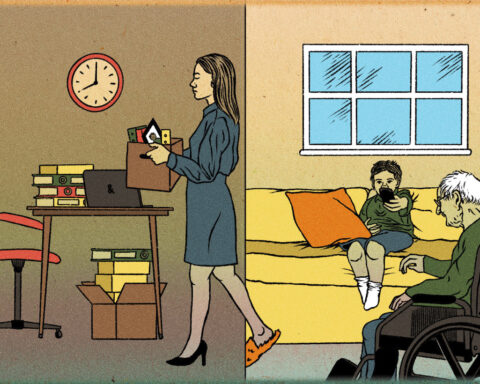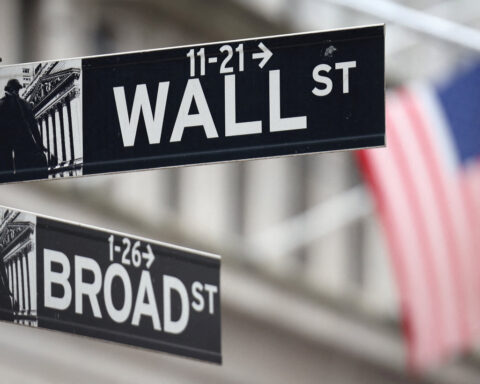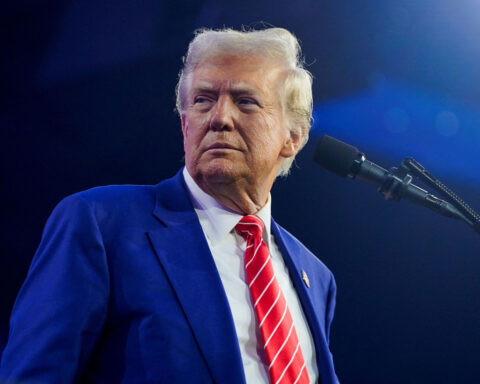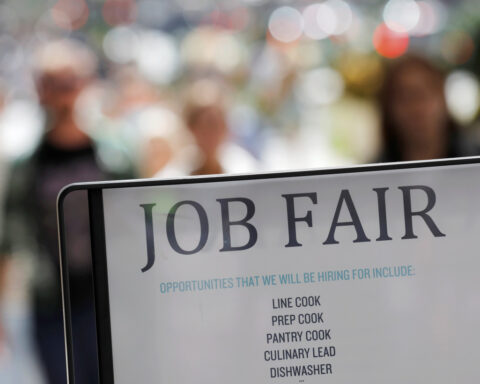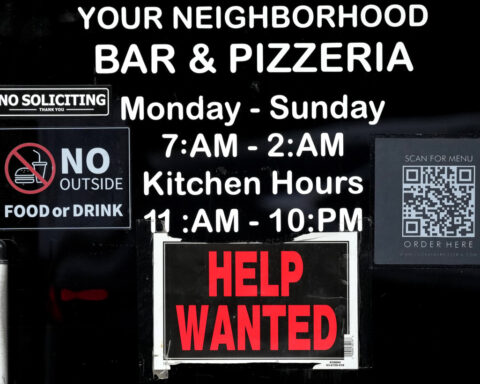A convenient app for ordering takeout has turned into a bait-and-switch scam. That's the allegation in a lawsuit filed this week by Los Angeles County against Grubhub, the nation's largest food delivery app. The suit accuses Grubhub of layering on hidden fees, falsely claiming drivers receive healthcare benefits, and misleading both customers and restaurants to pad its profits.
The lawsuit lands amid growing outrage over Grubhub's business practices. Customers have complained of inflated costs and orders never delivered. Restaurants say they're getting gouged by unexplained fees and refunds. And drivers claim Grubhub's healthcare and fair pay promises are an "outright deception."
This mounting backlash suggests Grubhub may soon face a reckoning. The suit seeks significant changes in the company's operations, including an end to bait-and-switch fees and more explicit restaurant contracts. It could upend a company that processed over half a billion orders last year alone if successful. For many, it's the culmination of years of frustration with a service they once relied upon.
Jane Wu considered herself a loyal Grubhub user for years. The app made takeout easy with her local Chinese restaurant just a few taps away. But recently, she started noticing odd charges tacked onto her bill. A $3 "small order fee" for what seemed like a regular order. A $2 "processing fee" on top of the delivery charge. Even a dubious "fuel surcharge fee" when gas prices were stable.
"It was charge after charge with no explanation," Wu said. "My $25 dinner would sometimes end up over $35 after everything."Wu's experience appears common - and by design. The lawsuit alleges Grubhub relies on these hidden fees, levied with unclear names and explanations, to inflate costs for unwitting customers massively. They appear aimed at padding profits while avoiding blame for high prices.
Some of the most disputed fees include:
- Small order fee: Up to $3 for orders that Grubhub deems too tiny, often regardless of size. This reportedly generated over $42 million for Grubhub in 2021.
- Processing fee: Vague fee added during checkout, generating over $72 million in 2021.
- Fuel surcharge: Appears sporadically regardless of gas prices, generating $28 million in 2021.
- Taxes: Potentially inflated fees with unclear connection to actual taxes.
According to the lawsuit, Grubhub does not reveal the total cost of fees upfront. Customers believe they order food for the advertised price, only to face higher charges after checkout. The costs also appear under confusing names and are tucked into dropdown menus, obscuring their scale and purpose.
For customers like Wu, the expanding fees feel like deception by a company they trusted. And Los Angeles County agrees. Their suit blasts Grubhub for "consumer fraud and false advertising" and seeks significant changes in how they disclose and structure fees.
Without that, customers face costs spiraling out of control. Grubhub's fees collected per order soared from $1.07 in 2019 to $2.51 in 2021. That uptick, unmatched in the industry, reveals a company relying ever more on fuzzy fees to drive revenue rather than customer transparency.
Gary Chiu signed up as a Grubhub driver last year, lured by its commercials touting "minimum pay guarantees" and health benefits. After losing his restaurant job to the pandemic, he needed a stable income and hoped Grubhub could provide it.
But after months of driving for the app, Chiu reports a harsh reality. The $2 per order he receives from Grubhub's "Driver Benefit Fee" hasn't provided any healthcare help. He also makes far less than the advertised "minimums" while facing long hours and high costs.
"It was all lies to get drivers on board," Chiu said. "We're the ones doing all the work and getting nothing."Chiu is one of over 250,000 Grubhub drivers nationwide. Los Angeles County's lawsuit alleges his experience reveals another deception by the delivery giant - false promises to drivers. The most glaring include:
- Healthcare benefits: Grubhub claims the Driver Benefit Fee funds healthcare coverage for all drivers. However, the lawsuit contends that almost none qualify due to Grubhub's shifting requirements.
- Minimum pay guarantees: Grubhub advertises hourly minimums to drivers as high as $18 in some markets. However, drivers report making far less through long hours and narrow qualifying rules.
- No need to tip: Grubhub assures customers that tips are unnecessary since drivers receive fair pay and benefits. The suit alleges that low income means drivers depend heavily on tips.
The Driver Benefit Fee primarily benefits Grubhub by funding meager assistance that helps avoid employee classification. Los Angeles County argues that drivers gain little, making the fee promotion deceptive at best. For struggling drivers like Chiu, these false promises foster intense frustration. "We put up with so much to make Grubhub its money," he said. "All we want is fair pay and support."
The lawsuit demands that Grubhub clarify its benefits to drivers rather than using deception to recruit them. According to one analysis, that transparency could upend a model that currently costs taxpayers over $900 million per year in assistance to underpaid Grubhub drivers.
Small restaurant owners nationwide report increasing reliance on Grubhub to drive sales and stay afloat. But many describe hits to their profits from a tangled web of fees and refunds dictated entirely by Grubhub.
Jade Wu owns the Mama Wong's Chinese restaurant outside Los Angeles. She signed up for Grubhub three years ago, hoping more online orders would offset high rents. At first, she saw a helpful revenue bump. Lately, Wu reports that her Grubhub partnership has become "more headache than it's worth." She gets charged uneven commission fees on every order. She faces surprise refunds to customers that come out of her pocket. Her restaurant appears on Grubhub without consent, including inaccurate menu items she can't remove or update."I feel stuck with no way out," Wu said.
Wu is not alone in her frustration. Los Angeles County's lawsuit highlights similar complaints from restaurants nationwide regarding Grubhub's practices. Most prominent are:
High commissions: Grubhub charges restaurants up to 40% per order in commissions and fees - far more than other delivery apps. This generates over $1.4 billion yearly for Grubhub at restaurants' expense.
Grubhub processes requested refunds to customers by docking restaurants, often without informing the restaurant. That leaves owners like Wu absorbing losses from potentially illegitimate claims.
Sign-up details for restaurants allegedly need to mention critical aspects like commissions. Owners believe they are getting marketing help, only to see significant cuts of each order paid to Grubhub.
For restaurants running on thin margins, these practices drive intense financial strain. Owners report cutting staff, raising prices, and halting expansion plans to account for losses to Grubhub. Some describe feeling "gouged by intermediaries you can't escape."That leaves owners like Wu desperate for interventions like Los Angeles County's suit.
"We try so hard to serve our community," Wu said. "But Grubhub seems devoted to wringing out every cent they can instead." With driver and restaurant relations fraying alongside consumer trust, Grubhub now stares down an existential threat. Though the company wields immense power - it commands over 50% of U.S. meal delivery sales - its position shows signs of weakening.
Negative press has multiplied as exposés reveal Grubhub's reliance on deception for revenue and market share. Celebrity defectors like restaurant owner David Chang have condemned its treatment of struggling restaurants. Longtime corporate partners like Chase and CapitalOne have dropped lucrative sponsorship deals.
Now, Los Angeles County's lawsuit threatens the most profound blow yet. The complaint asks the court to compel sweeping changes to Grubhub's fee and advertising structure. Experts say extracting meaningful reform through courts or settlements could force alterations to the company's underlying business model.
Of course, Grubhub remains defiant. Its spokespeople pledge to "aggressively defend" the status quo, signaling a prolonged legal battle awaits. Early PR maneuvers aim to distance the company from decisions by local outposts rather than systemic flaws. The company also points to loyalty programs and temporary fee cuts during COVID-19 as signs of support for restaurants.
But LA County officials remain adamant. "These practices must stop," said one attorney involved in the case.
The saga remains one of America's corporate giants versus millions of struggling customers, drivers, and restaurants. Those tired of Grubhub's deception are hungry for reform at last. The courts soon face pressure to deflate delivery's darling or further enable the deception.

 US sex-abuse watchdog fires investigator after learning of his arrest for stealing drug money
US sex-abuse watchdog fires investigator after learning of his arrest for stealing drug money
 Colorado nonprofit provides safety gear to homeless after tragic death previous Christmas
Colorado nonprofit provides safety gear to homeless after tragic death previous Christmas
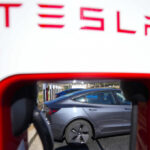 Five facts about electric vehicles in 2024
Five facts about electric vehicles in 2024
 Hwang Dong-hyuk on killing off his 'Squid Game' characters and wanting to work with Jake Gyllenhaal
Hwang Dong-hyuk on killing off his 'Squid Game' characters and wanting to work with Jake Gyllenhaal
 Erling Haaland misses penalty and Man City drops more points after 1-1 draw with Everton
Erling Haaland misses penalty and Man City drops more points after 1-1 draw with Everton
 Transform the daily grind to make life more interesting – a philosopher shares 3 strategies to help you attain the good life
Transform the daily grind to make life more interesting – a philosopher shares 3 strategies to help you attain the good life
 What if you could rank food by ‘healthiness’ as you shopped? Nutrient profiling systems use algorithms to simplify picking healthy groceries
What if you could rank food by ‘healthiness’ as you shopped? Nutrient profiling systems use algorithms to simplify picking healthy groceries
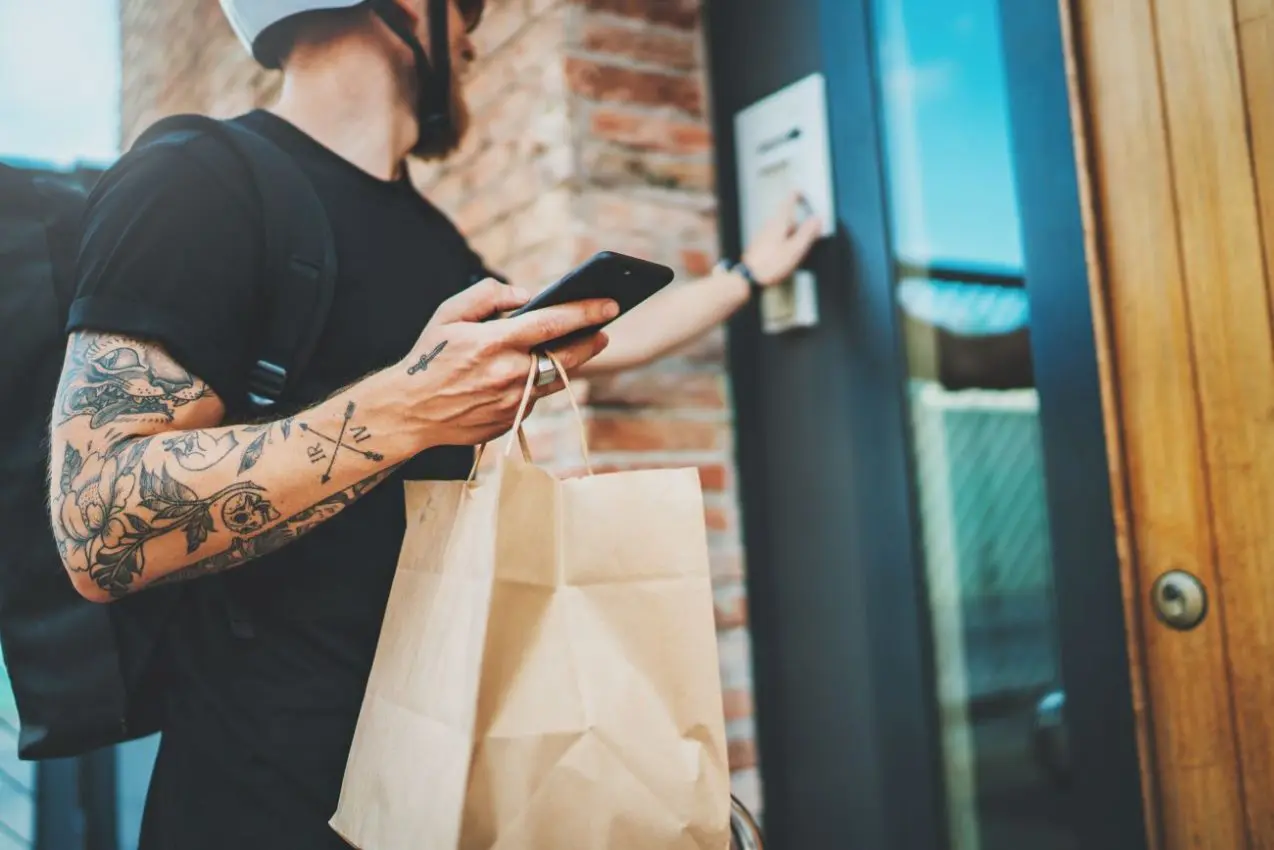 Exposing Grubhub's Hidden Fees and False Promises
Exposing Grubhub's Hidden Fees and False Promises
